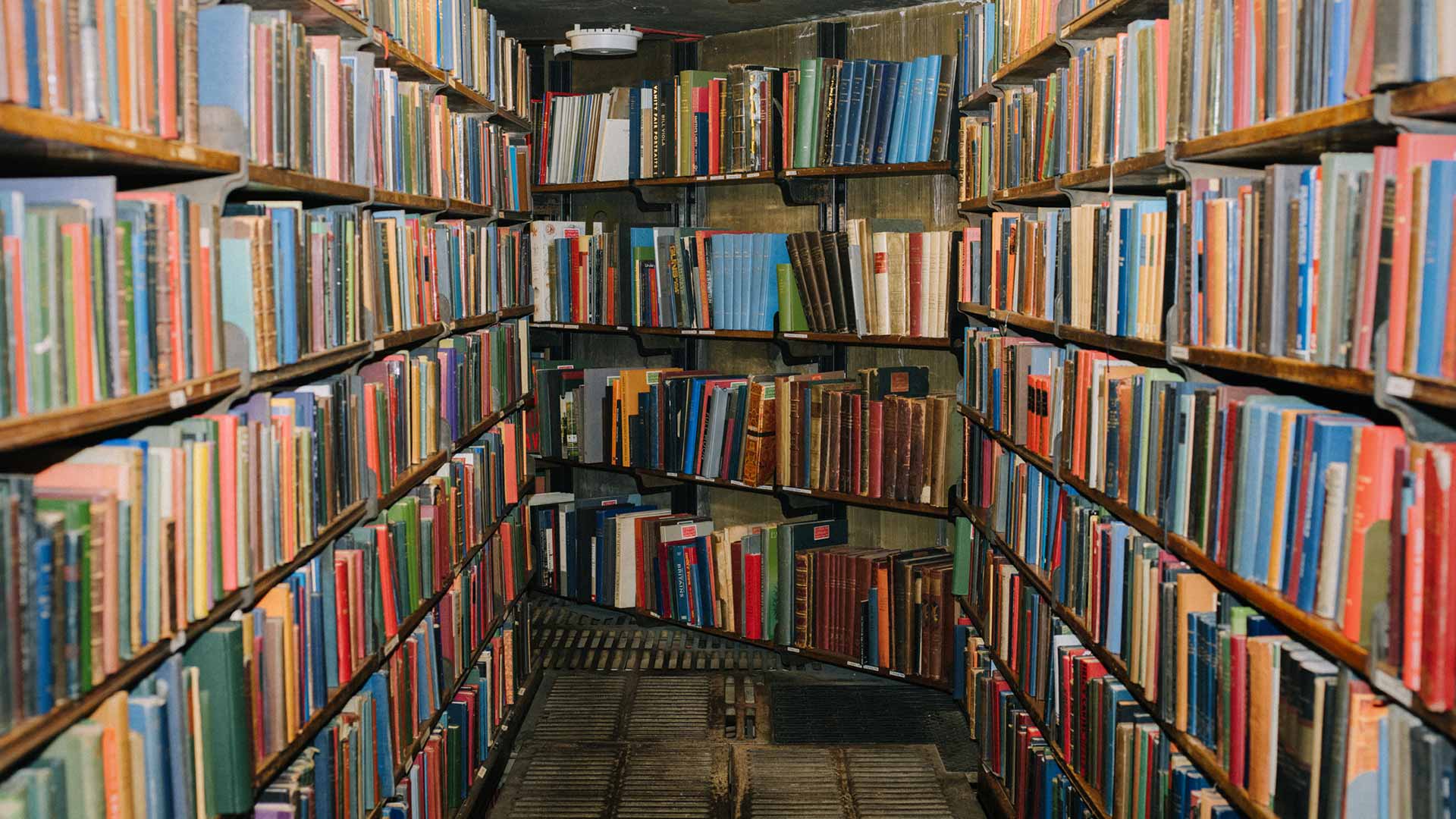In the heat of summer holidays, trains coming into Aligarh arrived packed, and left packed still more tightly. It was the early Nineties, and I was a teenager on vacation, going nowhere. But sometimes—if a part of my large extended family was arriving to or departing from our shared home—I was able to catch a ride to the railway station. The delegation of relatives would file through the entrance by the often unmanned inquiries counter. Next to this was a wooden kiosk, its walls gleaming white, its surfaces covered with books, magazines, pages. It was topped by a sign that declared—in Hindi as well as in ornate English lettering—A. H. Wheeler & Co. Pvt. Ltd. Behind me, trains whistled and sidled through; the expresses rattled past at thrilling speeds, goods trains screeched to a halt. The loudspeaker chanted dissonant announcements that passengers strained to understand. I stood at the long wooden counter of the bookshop, looking at the magazines fanned out in glass displays, the books placed on shelves just out of reach. I had to ask the proprietor to hand them down to me, and despite my adolescent self-consciousness, I became thick-skinned about demanding large piles, all examined while the crowds swirled and jostled around me. At night the stall glowed, lit by fluorescent tube lights, its glass reflecting the digital display boards. When I visited the bookstall this summer with my uncle, we found Prem Kumar at his post behind the counter. It had been Kumar, or his assistant, who patiently handed down the paperbacks I bought nearly thirty years ago. A slight man with light eyes and a mustache that I remember as perennially the same shade of gray, Kumar has something of an ageless look. Or perhaps it is his setting that makes him appear this way, his stillness in the midst of all that movement. Kumar moved to Aligarh in 1986, the same year he began running the bookstall. Before that, he had lived in Kanpur and then in Faizabad, a city about eight hours down the train line, where he had worked at his uncle’s bookstall—also a Wheeler’s. In the Nineties, the shelves had displayed the spirit of the age. Up front in the display was the iconic magazine Competition Success Review—as the name suggests, a publication targeted at aspirants for competitive exams and jobs. There were shelves covered with Hindi and Urdu magazines and books. These included the alluring Hindi paperbacks I was not permitted to buy, their covers illustrated with scarlet-lipped women, ghouls, snakes, and blood. There was the self-help classic by Dale Carnegie, 'How to Win Friends and Influence People, as well as an Indian variant, You Can Win, by Shiv Khera. There was a spread of spirituality: Khalil Gibran, Osho, and translations of the Bhagavad Gita. I also encountered many copies of the sunny yellow Cheiro’s Palmistry (The Book of Fate and Fortune) and Linda Goodman’s Sun Signs. Stacked on the shelves toward the back were the titles I patiently sifted through and carried away with me—short stories by Rabindranath Tagore, O. Henry, and Premchand. A selection of mysteries by Agatha Christie and Arthur Conan Doyle. The pacy history of Indian independence Freedom at Midnight. And most daringly, the slushy American romances of Erich Segal. At the destinations of the trains that rumbled past me, I knew, were more Wheeler’s bookstalls. The company had 378 stalls at 258 railway stations across the country.
A. H. Wheeler & Co.
This once robust magazine display has thinned out. The largest empty spaces, however, were on the shelves. The stacks of books that did remain were haphazardly arranged and dusty. I found some of the old holdovers, like Osho, self-help tomes, and guides to numerology. There was also a copy of Aravind Adiga's Last Man in Tower, a slim epistolary guide titled Letters for All Occasions, and still-glossy but diminished copies of Reader’s Digest. This desolation was unexpected; it also came with the guilt-tinged realization that I had not stopped by the bookstall for several years. Neither had my uncle. “Do you remember,” Kumar asked us as we took in this reality, “there used to be books stacked on the floor?” The bulk of his customers had been local residents, not travelers, he said. Most of the time we were at the stall, Kumar kept his eyes fixed on his smartphone screen. He was watching a cricket match. A few passengers approached to ask the location of their coaches—directions Kumar dispensed with practiced ease, waving a finger without even looking up. Only one other person came to the stall while we spoke—a drunk man who asked Kumar, “Do you have a magazine?” before lurching away. The biggest reason for the sharp decline in business, Kumar told me, was the internet. People could now stay occupied as they traveled. They could also buy books online. His sales were now “barely ten percent of what they used to be,” he said. Since 2018, the Railway Board has started efforts to convert all exclusive stalls at railway stations—including Wheeler’s—to multipurpose stalls (MPSs). These would stock snacks, mineral water, paper soap, medicines, powdered milk, and similar items for passengers. Essentials for journeys in India—which now bristled with the offerings on thousands of smartphones. The silence of books or magazines seems antiquated in train compartments where passengers play movie soundtracks, video clips, and devotional songs as they travel. Kumar’s bookstall has yet to transform into an MPS, but since books were not selling, he said, it would probably be a good idea to expand his stock. Why didn’t he simply close the stall and do something else? “I am seventy-five,” he said. “What else will I do?” So he stays at his post in the kiosk. To pass the time, he often reads. “Mostly the children’s books, or comics.” As we prepared to leave, Kumar turned to my uncle. “I remember your favorite magazines—you took an India Today and a Frontline, am I right?” He was. Kumar pulled out the publications, proud of remembering his regulars even when they had stopped being regular. We had picked up the magazines when we realized neither of us was carrying any money. Muttering awkward apologies, we put them back on the counter. “You could just take them,” said Kumar. “Pay me when you are here next.”


